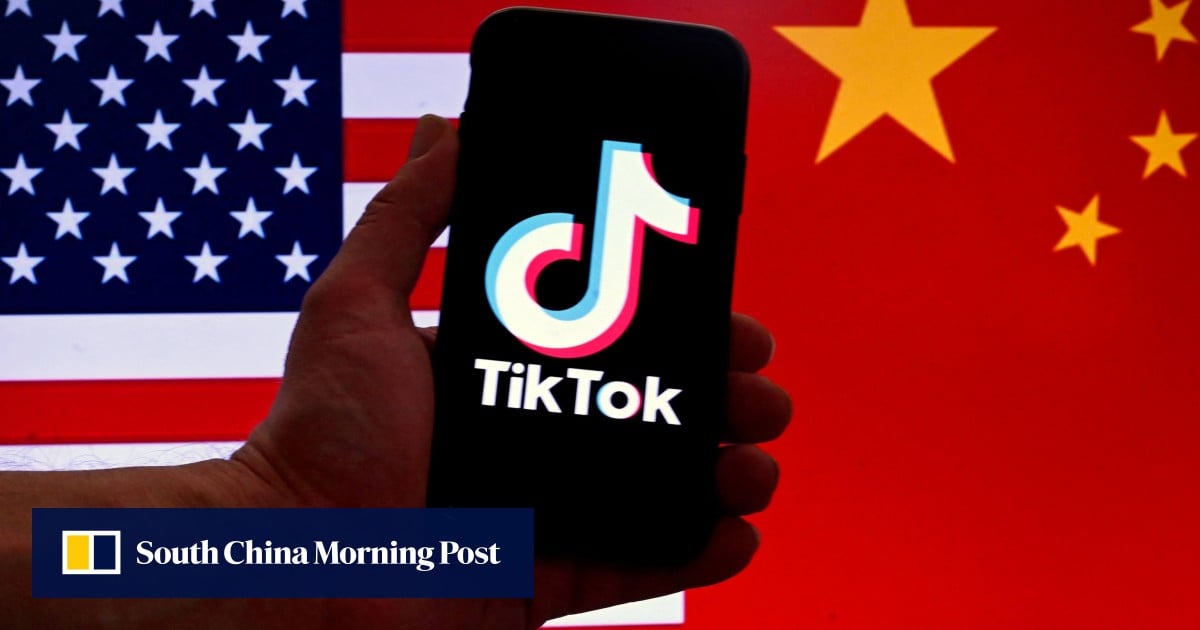That could tie it up for months, potentially killing it in an election year when lawmakers are eager to get back home to campaign.
It’s a fate that’s befallen many bills in the past, and senators signalled they were loath to rush on a bid to ban an app that’s used by as many as 170 million Americans.
‘A great business’: ex-Trump Treasury chief Mnuchin seeks TikTok buyout bid
‘A great business’: ex-Trump Treasury chief Mnuchin seeks TikTok buyout bid
Virginia Democrat Mark Warner, the chair of the Senate Intelligence Committee, said Thursday on Bloomberg Television’s Balance of Power that he would like the Senate to pass a TikTok bill quickly but acknowledged that his colleagues have a variety of proposals.
“We need to get this done,” he said of legislation to force divestiture.
The ban would present senators with a thorny decision. A Pew Research Centre poll from December showed 38 per cent of Americans support a TikTok ban, down from 50 per cent in March.
And Republican calculations became trickier after Donald Trump, the party’s presumptive nominee for this year’s election, came out against a ban that he had supported during his presidency.
“TikTok is lobbying full-scale, no holds barred, no matter how much time they have,” Blumenthal said. “The House bill really has to be reviewed very carefully.”
That lobbying campaign was in full force Thursday afternoon. Chew Shou Zi, TikTok’s CEO, was at the Capitol meeting with members, including Senator John Fetterman, a Pennsylvania Democrat.

Fetterman favours the House-passed legislation, citing the national security risks that he says TikTok’s Chinese parent ByteDance Ltd could pose to US users.
TikTok declined to comment on Thursday. But it has framed the bill as an outright ban, arguing, like Blumenthal, that six months wouldn’t be enough time for a sale. Fetterman said Chew didn’t change his mind.
“I expressed my frustrations, and I was clear that my children use TikTok,” Fetterman said in an interview. “So if I was trying to ban TikTok, I would’ve already banned it on the phones in my own home.”
Why is Trump now defending TikTok in the US after trying to ban it?
Why is Trump now defending TikTok in the US after trying to ban it?
James Andrew Lewis, a technology expert with the Centre for Strategic and International Studies, questioned the efficacy of the bill. “If you want a nice symbolic action, then they can move ahead on this,” Lewis said. “But if you want to actually do something, they’ll need to rewrite it.”
Cruz said he has spoken to Commerce Committee Chair Maria Cantwell, a Washington State Democrat, and that it wasn’t yet clear whether the panel will act on the House bill.
Other senators suggested the bill didn’t go far enough, casting even more doubt on its chances. Senator Elizabeth Warren, Massachusetts Democrat, advocated a proposal she has with South Carolina Republican Lindsey Graham for an independent commission to propose rules for social media companies.
“The threats posed by social media are not confined to one company,” Warren said in an interview. “We need curbs on social media that protect privacy, protect our children and ensure integrity.”
Senator Josh Hawley, a Missouri Republican and a fierce critic of TikTok, said he hoped the chamber would consider and vote on the House bill but was pessimistic about that outcome. He said massive lobbying spending has stifled congressional efforts to rein in abuses by tech behemoths.
“Let’s put it on the floor and let’s have a debate. We can amend it. We’ll have an open amendment process. We’d legislate,” Hawley said. “But I predict that will not be what happens.”







